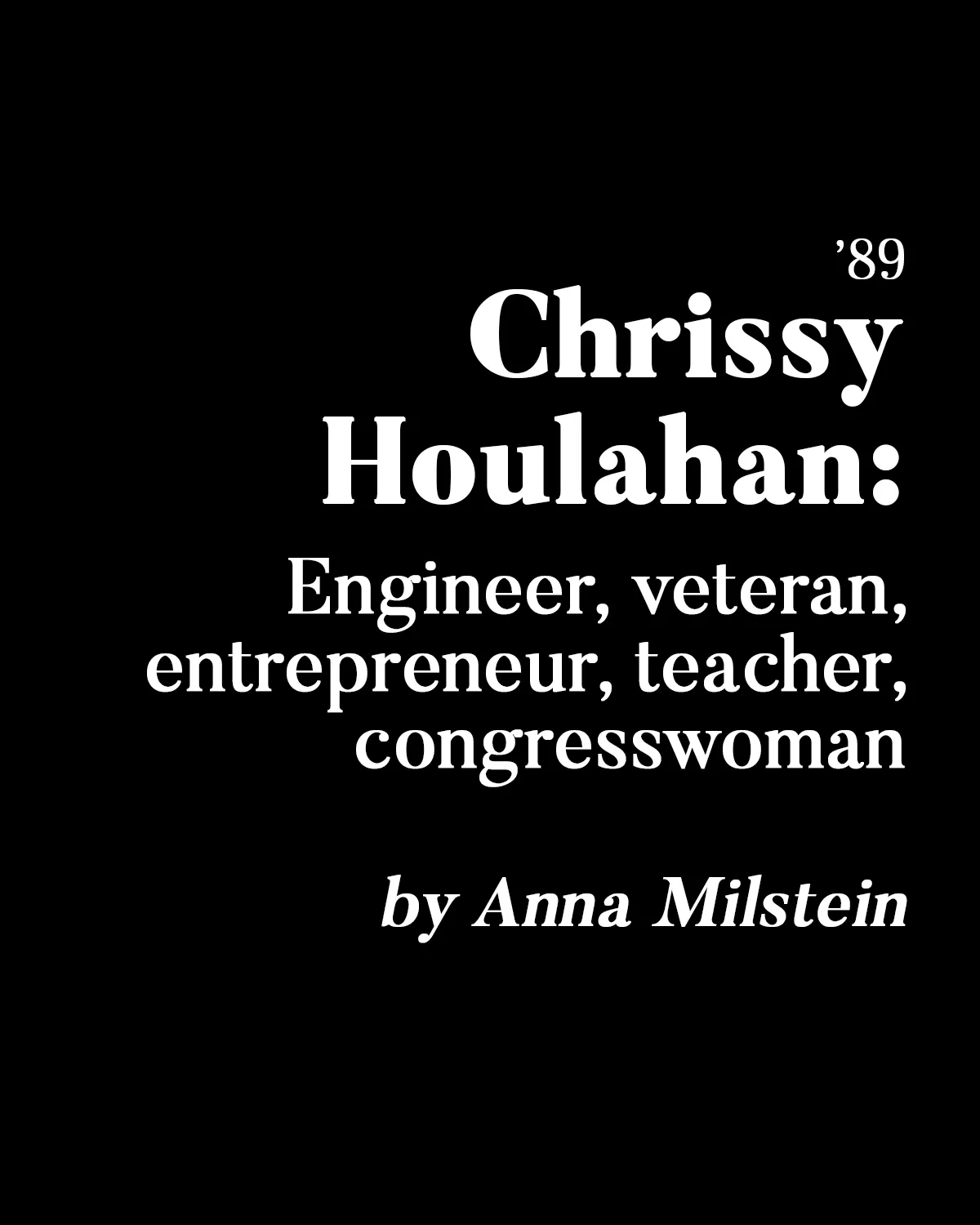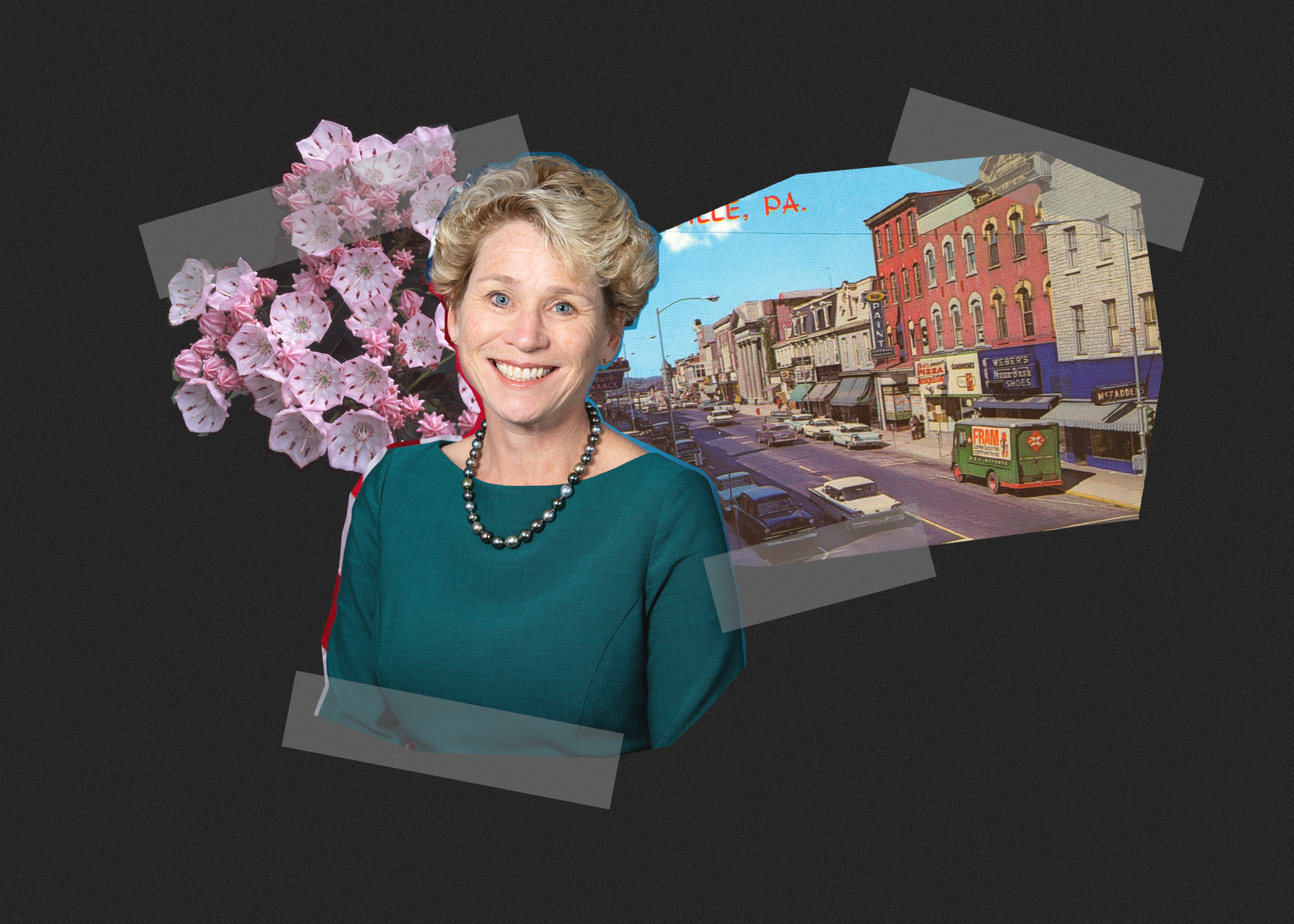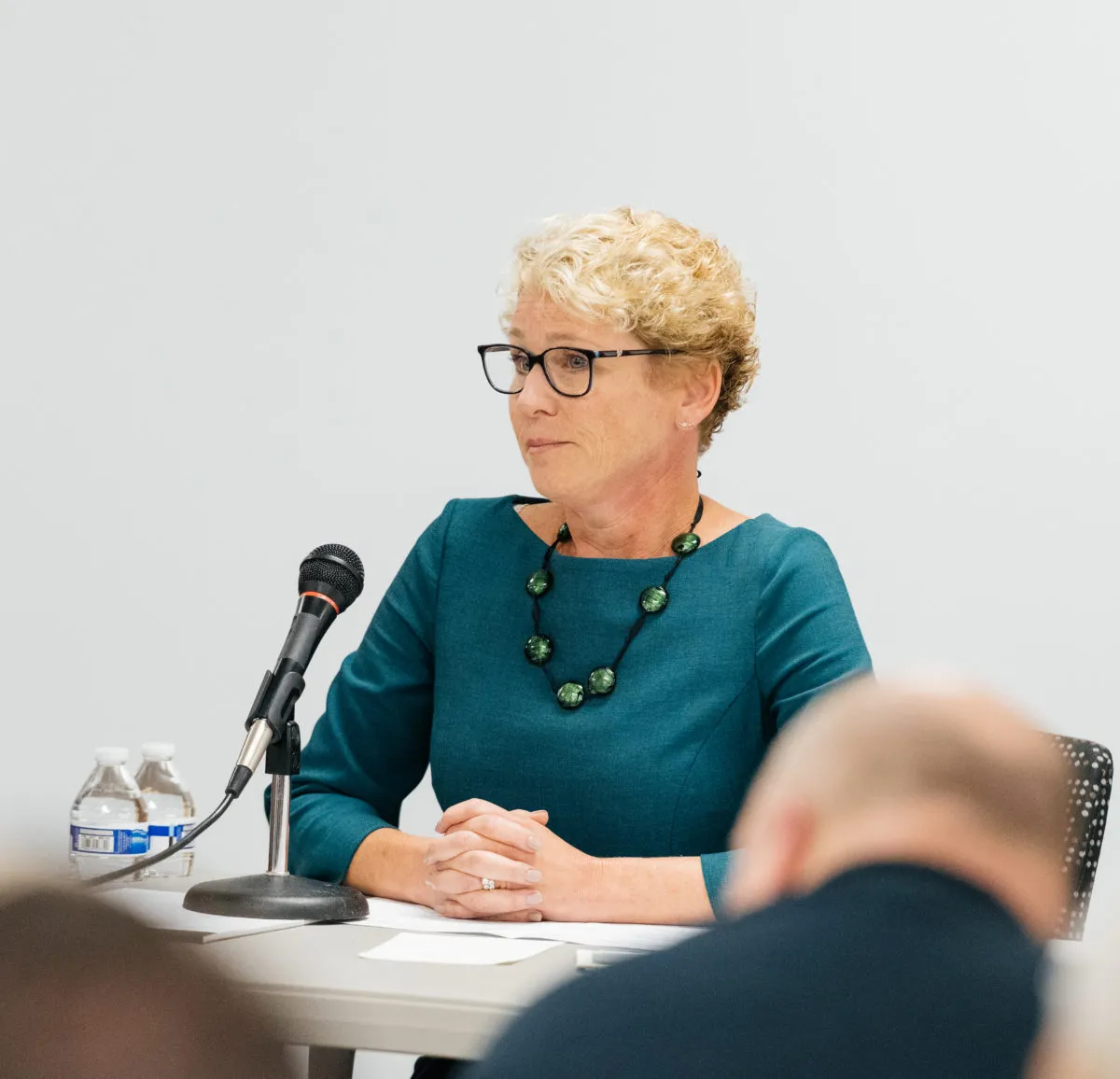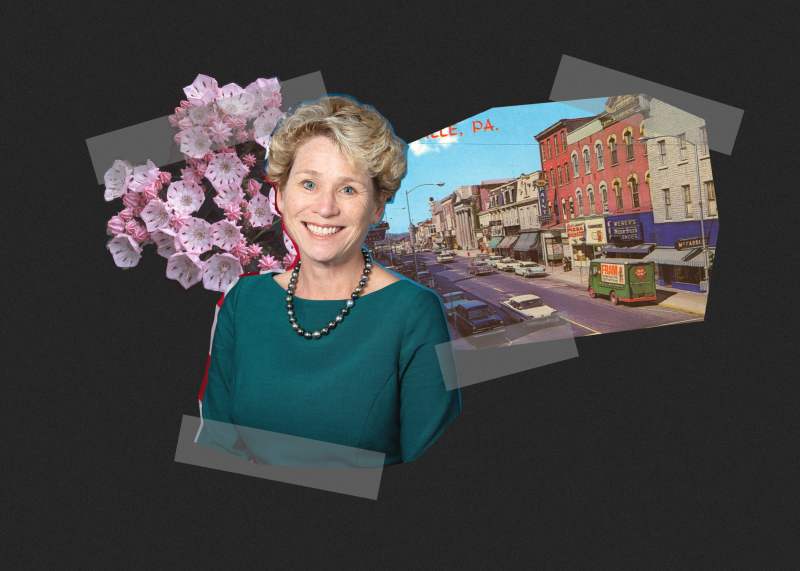

This article is part of a series of profiles of Stanford alumni in politics. Click here to read the rest of the stories.
“I met my husband our first week at Stanford,” said Chrissy Houlahan ’89, the first woman to represent Pennsylvania’s 6th District in Congress. During her first week of freshman year, the former Otero resident met a fellow Oteran named Bart Houlahan ’89. They began dating in October, and now have been married for over 30 years. Recalling her time at college, she shared: “My favorite memory is him.”
Her Stanford roots trail her to this day. Her best friends, two Oterans she met in 1985, also live in southeast Pennsylvania after beginning AND1, a basketball apparel company together.
Houlahan, who has three daughters — one a Stanford alum — advised current undergraduates to “take your work seriously but don’t take yourself seriously” and that “no choice will be a wrong choice.” Stanford undergraduates generally take themselves really seriously, she said. “I know I did. But just relax, it’ll all work out.”
Houlahan’s time at Stanford wasn’t always smooth sailing. She was in the Reserve Officers’ Training Corps (ROTC) program as an undergraduate. However, at the time, ROTC was not allowed on campus, so she traveled to San José State University to fulfill her obligations. Scheduling conflicts posed a challenge. She was an engineering major with classes on Monday, Wednesday and Friday, while her ROTC commitment was “all of Friday”; she knew that she would be missing a third of all of her classes.
“Knowing that what you were doing with that time was unrecognized by the institution was hard,” said Houlahan, a third-generation military veteran. “It was hard to feel unwelcome, that your contributions were not necessarily valued,” she said. “It was hard to feel judged.”
Despite the judgement she faced, Houlahan believes in the need for people from different backgrounds, including from service: “I thought it was really, really important to be there.”
Houlahan believes that service comes in different forms at different times. In addition to her ROTC commitments as an undergraduate, she tutored in East Palo Alto. She then served in the military in the U.S. Air Force and Air Force Reserves, taught chemistry through Teach for America and led organizations including AND1 Basketball and B Lab — all before joining Congress as a House Representative in 2018.
Raised in a “bipartisan family,” Houlahan was taught to honor the choice of the people. However, the 2016 election felt “very different” — Houlahan believed that the country was heading in a “difficult and dangerous direction.” Questioning what she could do to be more helpful, she decided to run for office.
Houlahan’s district in southeast Pennsylvania — redrawn in 2018 due to partisan gerrymandering — had been won by Republicans since 2002. Chester County, comprising a large area of PA-6, had not been won by a Democrat in 163 years. Not a single female had represented the district in the past. She ran “with an understanding that my likelihood of being successful was pretty slim.” Houlahan won 58.9% of the vote.
A record number of women ran for office in 2018 — nearly 60% more women announced their plans to run for Congress than in 2016, according to Politico. During the last midterm elections, three more women — all Democrats — were elected to the House of Representatives from Pennsylvania alongside Houlahan: Susan Wild, Mary Gay Scanlon and Madeleine Dean. The congresswomen set a state record with four women elected to the U.S. House, ending the commonwealth’s entirely male congressional delegation.
In the Nov. 3 elections, she won her first reelection bid with over 55% of the vote. “I’d also like to thank my opponent, Mr. John Emmons, and his family for stepping up to run,” she tweeted after AP declared her victory.

According to Houlahan, healthcare is the biggest issue facing her constituents in PA-6. “People are very, very scared. They’re scared because there’s nothing more important than your health and the health of your family,” she said. While it was not the specific reason she decided to run for Congress, she recognized it as the “hot button” issue for her community.
Houlahan said that Americans are concerned about a potential repeal of the Affordable Care Act in light of the confirmation of Justice Amy Coney Barrett to the Supreme Court. “We’re an enormously wealthy nation. We’re enormously generous people, and the fact that we have this conversation about just survival is, I think, a striking problem,” she said.
Houlahan is committed to good governance: “It was an absolute goal of our team to strive to be transparent and accountable.” Her efforts were recognized in October when she won a Democracy Award from the Congressional Management Foundation, a non-partisan organization promoting improved management practices in Congress. Houlahan was the first freshman lawmaker to be awarded in the Transparency and Accountability category. “I’m really proud of our team for having succeeded,” she said.
She believes that an elected representative government should be of service to all: “Your elected representative government should be transparent and accessible. It should be of service to you, whoever you are, whatever party you are from.”
(Responses have been edited for length and clarity.)
I met my husband our first week at Stanford. We were in the same freshman dorm. We were in Otero together, and we started dating within a couple weeks of the beginning of our school year, and we have now been married for more than 30 years. So my favorite memory is him.
It’s healthcare. It’s making sure that people have access to it, making sure that it’s affordable, making sure that the quality is consistent. This is something that is not the reason why I necessarily raised my hand to run for Congress — it was not this compelling, driving, healthcare-focused mission, although many people do run for that reason — but it was very, very apparent very, very early on that this was the hot button, and still is the hot button, for our community and, I believe, for the Commonwealth of Pennsylvania and for the country. And you hear this even right now with the conversation with the Supreme Court confirmation and the concern about the Affordable Care Act. People are very, very scared. They’re scared because there’s nothing more important than your health and the health of your family. We’re an enormously wealthy nation, we’re enormously generous people, and the fact that we have this conversation about just survival is, I think, a striking problem.
My advice to people is: Service comes in lots and lots of different forms, and it comes in different forms at different times. When I was a Stanford undergrad, I was a tutor in East Palo Alto. And then I served in the military, served by growing AND1 basketball — which was, at the time, a real model for how you can make sure that you grow a company that is profitable but also cares for community and people and the environment. Or Teach for America, or running a nonprofit that focused on early childhood literacy — each one of those things, including being a mom, is service, and I think that people put too much pressure on themselves to be whatever thing, an elected thing. But the reality is, wherever you are, you can be of service and it may change over time, but you just want to make sure — and it sounds really trite and cliche, but you want to make sure that you leave the place better than you came to it, and also that you’re always trying to think about the highest and best way that you can use what you have and the skills that you have at that time to be helpful. I think there’s way too much pressure on all of us, but particularly your generation, to do everything all at one time and to be the 30 under 30 or whatever it is that you’re setting your goals on, rather than just to be present and to be where you are.
Looking ahead, Houlahan and her team have “tons of work to do.” Amid the COVID-19 crisis, Houlahan’s office has been working virtually. While her team of around 18 people had to disperse physically, they rallied to address the pandemic and its economic impacts on businesses and individuals in her community. Redrawing the organizational structure and re-orienting staff, this crisis was an “entrepreneurial challenge to figure out how to pivot your organization, your mission,” Houlahan said. She held virtual town hall series for her constituents on various topics, including on COVID-19 and science, accessing support and how to vote safely.
With 435 representatives in the House, Houlahan said that “there are really good people who you never hear about. I’m probably one of them.”
Most people who are not into U.S. politics do not see the members of Congress that are working every day for the people, according to Houlahan. She said that some representatives’ “intention is to not get attention and to try and do their jobs.”
While it can be “kind of depressing and hard” at times, this is exactly what she wanted to do. “That’s why I want to be here and that’s why so many of us are here.”
Contact Anna Milstein at annamil ‘at’ stanford.edu.
